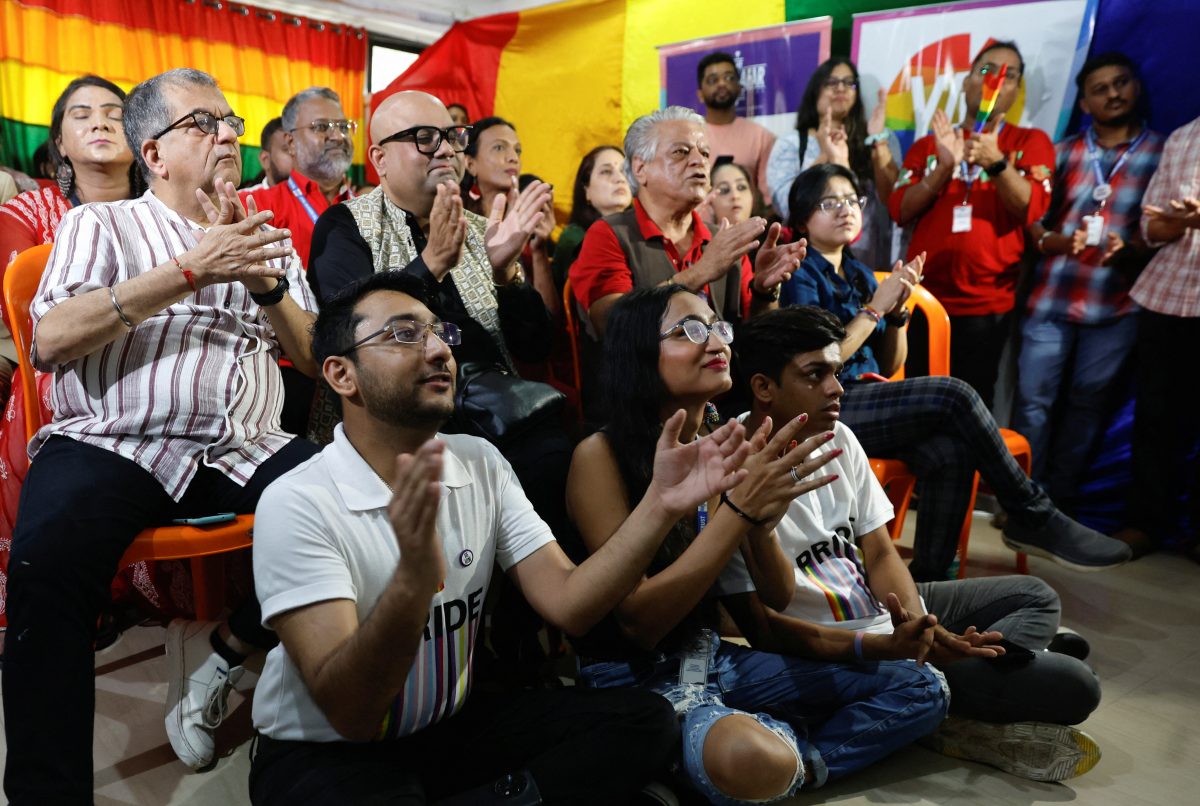NEW DELHI, (Reuters) – India’s top court today declined to legalise same-sex marriage and left it to parliament to decide, agreeing with Prime Minister Narendra Modi’s government that the legislature is the right forum to rule on the contentious issue.
The unanimous order by a five-judge bench came as a huge disappointment to the large LGBTQ community in the world’s most populous country, five years after the court scrapped a colonial-era ban on gay sex.
There was no immediate response from the government to the court ruling but Modi’s nationalist Bharatiya Janata Party (BJP) administration had opposed petitions to the court on the issue, saying same-sex marriage is not “comparable with the Indian family unit concept of a husband, a wife and children”.
The court decision came in response to more than a dozen petitions filed since last year. The bench, headed by Chief Justice D.Y. Chandrachud, heard arguments in April and May and pronounced its verdict on Tuesday.
Chandrachud said there was a degree of “agreement and a degree of disagreement on how far we have to go” on same-sex marriage, adding that four of the five judges had written separate judgements, reflecting the complexity of the case.
“This court cannot make law. It can only interpret it and give effect to it,” Chandrachud said, while also rejecting the government argument that being gay is “urban or elite”.
The court left it to a panel suggested by the government to address “human concerns” of same-sex couples.
It said the panel should include experts with knowledge and experience in dealing with the social, psychological and emotional needs of people belonging to the gay community.
The panel should also consider giving same-sex couples access to services and facilities such as joint accounts in banks and pensions, from which they are currently barred.
SHOCK, TEARS
Chandrachud and a second judge referred to recognising unions or civil unions of same-sex couples but the other three judges did not agree.
“Marriage is a social institution. The marital status is not conferred by the state,” said Ravindra Bhat, one of the three other judges. “The idea of marriage is not a fundamental right.”
Members of the LGBTQ community were seen coming out of the court in tears after the verdict, with some consoling each other.
“I didn’t expect it would be a very good judgement but it feels much worse than expected,” said Uday Raj Anand, who along with his same-sex partner, was a petitioner in the case.
“What I had thought was that at least the court would make its stand clear, say that it is not in a position to make or change law but they would certainly direct the government to do it,” he said.
“So it feels a bit shocking to not have even got that much.”
Asia largely lags behind the West in accepting same-sex marriage with only Taiwan and Nepal allowing it in a continent where largely conservative values still dominate society.
Activists say that while the 2018 ruling scrapping the ban on gay sex affirmed their constitutional rights, it was unjust that they still lacked legal backing for unions, a basic right enjoyed by heterosexual married couples.






